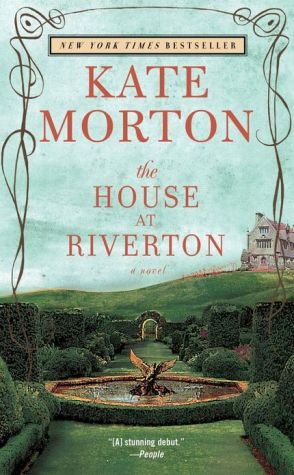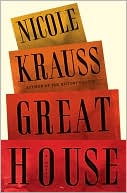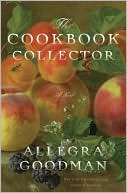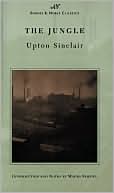The House at Riverton
The House at Riverton is a gorgeous debut novel set in England between the wars. Perfect for fans of Downton Abbey, it is the story of an aristocratic family, a house, a mysterious death and a way of life that vanished forever, told in flashback by a woman who witnessed it all and kept a secret for decades.\ Grace Bradley went to work at Riverton House as a servant when she was just a girl, before the First World War. For years her life was inextricably tied up with the Hartford family, most...
Search in google:
Grace Bradley went to work at Riverton House as a servant when she was just a girl, before the First World War. For years her life was inextricably tied up with the Hartford family, most particularly the two daughters, Hannah and Emmeline.In the summer of 1924, at a glittering society party held at the house, a young poet shot himself. The only witnesses were Hannah and Emmeline and only they-and Grace-know the truth.In 1999, when Grace is ninety-eight years old and living out her last days in a nursing home, she is visited by a young director who is making a film about the events of that summer. She takes Grace back to Riverton House and reawakens her memories. Told in flashback, this is the story of Grace's youth during the last days of Edwardian aristocratic privilege shattered by war, of the vibrant twenties, and the changes she witnessed as an entire way of life vanished forever.The novel is full of secrets-some revealed, others hidden forever, reminiscent of the romantic suspense of Daphne Du Maurier. It is also a meditation on memory, the devastation of war, and a beautifully rendered window into a fascinating time in history.Originally published to critical acclaim in Australia, already sold in ten countries and a #1 bestseller in England, The House at Riverton is a vivid, page-turning novel of suspense and passion, with characters-and an ending-the reader won't soon forget.Publishers WeeklyThis debut page-turner from Australian Morton recounts the crumbling of a prominent British family as seen through the eyes of one of its servants. At 14, Grace Reeves leaves home to work for her mother's former employers at Riverton House. She is the same age as Hannah, the headstrong middle child who visits her uncle, Lord Ashbury, at Riverton House with her siblings Emmeline and David. Fascinated, Grace observes their comings and goings and, as an invisible maid, is privy to the secrets she will spend "a lifetime pretending to forget." But when a filmmaker working on a movie about the family contacts a 98-year-old Grace to fact-check particulars, the memories come swirling back. The plot largely revolves around sisters Hannah and Emmeline, who were present when a family friend, the young poet R.S. Hunter, allegedly committed suicide at Riverton. Grace hints throughout the narrative that no one knows the real story, and as she chronicles Hannah's schemes to have her own life and the curdling of younger Emmeline's jealousy, the truth about the poet's death is revealed. Morton triumphs with a riveting plot, a touching but tense love story and a haunting ending. (Apr.)Copyright 2007 Reed Business Information
GHOSTS STIR \ Last November I had a nightmare.\ It was 1924 and I was at Riverton again. All the doors hung wide open, silk billowing in the summer breeze. An orchestra perched high on the hill beneath the ancient maple, violins lilting lazily in the warmth. The air rang with pealing laughter and crystal, and the sky was the kind of blue we'd all thought the war had destroyed forever. One of the footmen, smart in black and white, poured champagne into the top of a tower of glass flutes and everyone clapped, delighting in the splendid wastage.\ I saw myself, the way one does in dreams, moving amongst the guests. Moving slowly, much more slowly than one can in life, the others a blur of silk and sequins.\ I was looking for someone.\ Then the picture changed and I was near the summer house, only it wasn't the summer house at Riverton — it couldn't have been. This was not the shiny new building Teddy had designed, but an old structure with ivy climbing the walls, twisting itself through the windows, strangling the pillars.\ Someone was calling me. A woman, a voice I recognized, coming from behind the building, on the lake's edge. I walked down the slope, my hands brushing against the tallest reeds. A figure crouched on the bank.\ It was Hannah, in her wedding dress, mud splattered across the front, clinging to the appliquéd roses. She looked up at me, her face pale where it emerged from shadow. Her voice chilled my blood. "You're too late." She pointed at my hands. "You're too late."\ I looked down at my hands, young hands, covered in dark river mud, and in them the stiff, cold body of a dead foxhound.\ I know what brought it on, of course. It was the letter from the filmmaker. I don't receive much mail these days: the occasional postcard from a dutiful, holidaying friend; a perfunctory letter from the bank where I keep a savings account; an invitation to the christening of a child whose parents I am shocked to realize are no longer children themselves.\ Ursula's letter had arrived on a Tuesday morning late in November and Sylvia had brought it with her when she came to make my bed. She'd raised heavily sketched eyebrows and waved the envelope.\ "Mail today. Something from the States by the look of the stamp. Your grandson, perhaps?" The left brow arched — a question mark — and her voice lowered to a husky whisper. "Terrible business, that. Just terrible. And him such a nice young man."\ As Sylvia tut-tutted, I thanked her for the letter. I like Sylvia. She's one of the few people able to look beyond the lines on my face to see the twenty-year-old who lives inside. Nonetheless, I refuse to be drawn into conversation about Marcus.\ I asked her to open the curtains and she pursed her lips a moment before moving on to another of her favorite subjects: the weather, the likelihood of snow for Christmas, the havoc it would wreak on the arthritic residents. I responded when required, but my mind was on the envelope in my lap, wondering at the scratchy penmanship, the foreign stamps, softened edges that spoke of lengthy travails.\ "Here, why don't I read that for you," Sylvia said, giving the pillows a final, hopeful plump. "Give your eyes a bit of a rest?"\ "No. Thank you. Perhaps you could pass my glasses, though?"\ When she'd left, promising to come back and help me dress after she'd finished her rounds, I prised the letter from its envelope, hands shaking the way they do, wondering whether he was finally coming home.\ But it wasn't from Marcus at all. It was from a young woman making a film about the past. She wanted me to look at her sets, to remember things and places from long ago. As if I hadn't spent a lifetime pretending to forget.\ I ignored that letter. I folded it carefully and quietly, slid it inside a book I'd long ago given up reading. And then I exhaled. It was not the first time I had been reminded of what happened at Riverton, to Robbie and the Hartford sisters. Once I saw the tail end of a documentary on television, something Ruth was watching about war poets. When Robbie's face filled the screen, his name printed across the bottom in an unassuming font, my skin prickled. But nothing happened. Ruth didn't flinch, the narrator continued, and I went on drying the dinner plates.\ Another time, reading the newspaper, my eye was drawn to a familiar name in a write-up in the television guide; a program celebrating seventy years of British films. I noted the time, my heart thrilling, wondering if I dared watch it. In the end I fell asleep before it finished. There was very little about Emmeline. A few publicity photos, none of which showed her true beauty, and a clip from one of her silent films, The Venus Affair, which made her look strange: hollowcheeked; jerky movements like a marionette. There was no reference to the other films, the ones that threatened such a fuss. I suppose they don't rate a mention in these days of promiscuity and permissiveness.\ But although I had been met with such memories before, Ursula's letter was different. It was the first time in over seventy years that anyone had associated me with the events, had remembered that a young woman named Grace Reeves had been at Riverton that summer. It made me feel vulnerable somehow, singled out. Guilty.\ No. I was adamant. That letter would remain unanswered.\ And so it did.\ A strange thing began to happen, though. Memories, long consigned to the dark reaches of my mind, began to sneak through cracks. Images were tossed up high and dry, picture-perfect, as if a lifetime hadn't passed between. And, after the first tentative drops, the deluge. Whole conversations, word for word, nuance for nuance; scenes played out as though on film.\ I have surprised myself. While moths have torn holes in my recent memories, I find the distant past is sharp and clear. They come often lately, those ghosts from the past, and I am surprised to find I don't much mind them. Not nearly so much as I had supposed I would. Indeed, the specters I have spent my life escaping have become almost a comfort, something I welcome, anticipate, like one of those serials Sylvia is always talking about, hurrying her rounds so that she can watch them down at the main hall. I had forgotten, I suppose, that there were bright memories in amongst the dark.\ When the second letter arrived last week, in the same scratchy hand on the same soft paper, I knew I was going to say yes, I would look at the sets. I was curious, a sensation I hadn't felt in some time. There is not much left to be curious about when one is ninety-eight years old, but I wanted to meet this Ursula Ryan who plans to bring them all to life again, who is so passionate about their story.\ So I wrote her a letter, had Sylvia post it for me and we arranged to meet. Copyright © 2006 by Kate Morton
PART ONE Ghosts Stir The Drawing Room The Nursery Waiting for the Recital All Good Things Saffron High Street In the West Until We Meet Again PART TWO The Twelfth of July The Fall of Icarus The Photograph Bankers The Dinner A Suitable Husband The Ball and After PART THREE Catching Butterflies Down the Rabbit Hole In the Depths Resurrection The Choice PART FOUR Hannah's Story The Beginning of the End Riverton Revisited Slipping Out of Time The End The Tape The Letter Acknowledgments Author's Note
\ From the Publisher"This novel will challenge your definitions of friendship, family and, most of all, trust." — Hallmark Magazine\ "An extraordinary debut...written with a lovely turn of phrase. [Morton] knows how to eke out tantalizing secrets and drama." — The Sunday Telegraph (UK)\ \ \ \ \ \ Publishers WeeklyThis debut page-turner from Australian Morton recounts the crumbling of a prominent British family as seen through the eyes of one of its servants. At 14, Grace Reeves leaves home to work for her mother's former employers at Riverton House. She is the same age as Hannah, the headstrong middle child who visits her uncle, Lord Ashbury, at Riverton House with her siblings Emmeline and David. Fascinated, Grace observes their comings and goings and, as an invisible maid, is privy to the secrets she will spend "a lifetime pretending to forget." But when a filmmaker working on a movie about the family contacts a 98-year-old Grace to fact-check particulars, the memories come swirling back. The plot largely revolves around sisters Hannah and Emmeline, who were present when a family friend, the young poet R.S. Hunter, allegedly committed suicide at Riverton. Grace hints throughout the narrative that no one knows the real story, and as she chronicles Hannah's schemes to have her own life and the curdling of younger Emmeline's jealousy, the truth about the poet's death is revealed. Morton triumphs with a riveting plot, a touching but tense love story and a haunting ending. (Apr.)\ Copyright 2007 Reed Business Information\ \ \ Library JournalFor decades, Grace Reeves has kept secret the truth of a poet's violent death by the lake at Riverton House in Oxfordshire. Now at the end of her life, 98-year-old Grace's memory is swept back, after interviews for a film about the tragic incident, to those years of her service for the Hartford family. At 15, Grace begins her adult life as a housemaid in the grand Riverton House, quickly learning her place in the servant hierarchy. Her loyalty and attachment to Hannah and Emmeline Hartford grow over the years, as the Hartford family is affected by war, death, financial failings, and illicit love. Debut Australian author Morton pens a suspenseful and beautifully atmospheric novel capturing the transitional time from the end of the Edwardian era through World War I into the Roaring Twenties. Intriguing characters, both past and present, are skillfully drawn to create an enjoyable tale. Recommended for popular fiction collections.-Joy St. John, Henderson Dist. P.L., NV\ Copyright 2006 Reed Business Information.\ \ \ \ \ Kirkus ReviewsIn Australian author Morton's atmospheric first novel, a 98-year-old woman recollects her unwitting role in a fatal deception. Grace, a prominent former archeologist, is living out her waning years in a British nursing home, when an American filmmaker, Ursula, asks her to consult on a movie about the scandalous 1924 suicide of a poet during a lavish soiree at Riverton, a country estate where Grace once served as parlor maid to the Hartford family. Extended flashbacks excavate the mysteries that surround Grace almost from the first. Why did Grace's mother, herself a servant at Riverton before leaving under a cloud, send her 14-year-old daughter to work there? Who is Grace's father? The domestic servant is a convenient expository device: Grace can eavesdrop on every Hartford family crisis. Hannah, her sister Emmeline and brother David occasionally visit Riverton, owned by their uncle, Lord Ashbury. Their father, Frederick, the second son, is an automobile pioneer. But World War I upends the destinies of the Hartford clan. David, his schoolmate Robbie and Grace's heartthrob, Alfred, a footman, all go to fight. David is killed, Robbie drops out of sight and Alfred suffers shell shock. The war also claims the lives of Lord Ashbury and his eldest son, and Frederick inherits the title. Frederick's business is mortgaged to American bankers, the Luxtons, who force a sale of his factory. To Frederick's chagrin, Hannah marries Luxton scion Teddy, who, after flirting briefly with bohemian ways, reverts to stodgy banker-hood. Languishing in London while her estranged father lets Riverton decay, Hannah relies increasingly on Grace, now her personal maid. Hannah's mistaken assumption that Grace knowsshorthand leads both to make a tragic error in judgment. Meanwhile, Robbie resurfaces, his psyche scarred by war. Although ostensibly courting Emmeline, Robbie is drawn into an adulterous affair with Hannah that proves his undoing. Though the climactic revelation feels contrived, Morton's characters and their predicaments are affecting, and she recreates the period with a sure hand.\ \







